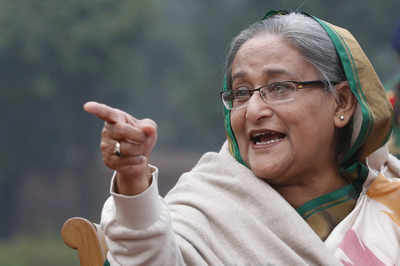
In a dramatic turn of events, Sheikh Hasina, the long-standing Prime Minister of Bangladesh, has resigned and left the country, igniting a political crisis that has far-reaching implications both domestically and internationally. The news broke early this morning, as global media outlets reported her sudden departure amidst escalating turmoil in the country.
For over a decade, Sheikh Hasina has been a dominant figure in Bangladeshi politics, leading the Awami League party and overseeing a period of significant economic growth and infrastructural development. However, her tenure has also been marked by accusations of authoritarianism, electoral fraud, and suppression of dissent. The recent political unrest has intensified these issues, creating a volatile environment that ultimately led to her dramatic exit.
Reports indicate that Hasina's departure came in the wake of widespread protests and mounting pressure from opposition groups. The situation in Bangladesh has been increasingly unstable, with demonstrations erupting across major cities as people demand democratic reforms and an end to the government's repressive tactics. The resignation and subsequent flight of Hasina have only fueled further unrest, raising questions about the future direction of the nation.
Experts are labeling this scenario as the "worst-case" outcome for neighboring India, which has traditionally had a complex relationship with Bangladesh. India has been closely monitoring the situation due to its strategic interests and the potential impact on regional stability. The unexpected departure of Hasina creates a power vacuum that could lead to further instability and uncertainty in Bangladesh, with potential ripple effects on the geopolitical landscape.
The Guardian's report highlights that Hasina's resignation follows a series of significant political and social upheavals. The Prime Minister's decision to flee the country has been seen by many as an attempt to avoid facing the growing backlash from both the public and opposition leaders. Her departure raises concerns about the potential for increased violence and disorder as different factions vie for control.
As the political crisis unfolds, the international community is watching closely, with calls for calm and dialogue from various quarters. The United Nations and other global organizations are urging all parties in Bangladesh to engage in peaceful negotiations to resolve the crisis and restore stability. The situation remains fluid, with the potential for rapid developments in the coming days.
The departure of Sheikh Hasina marks a significant turning point in Bangladesh's political history. Her leadership has been both praised and criticized, and her sudden exit underscores the deep-seated issues within the country’s political framework. As Bangladesh navigates this challenging period, the world will be closely watching how the situation evolves and what steps will be taken to address the underlying issues that have led to this crisis.


0 Comments